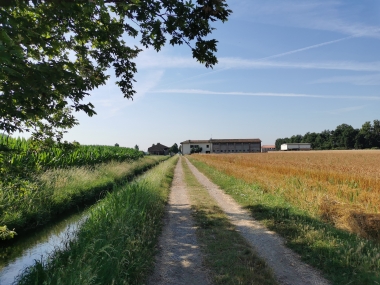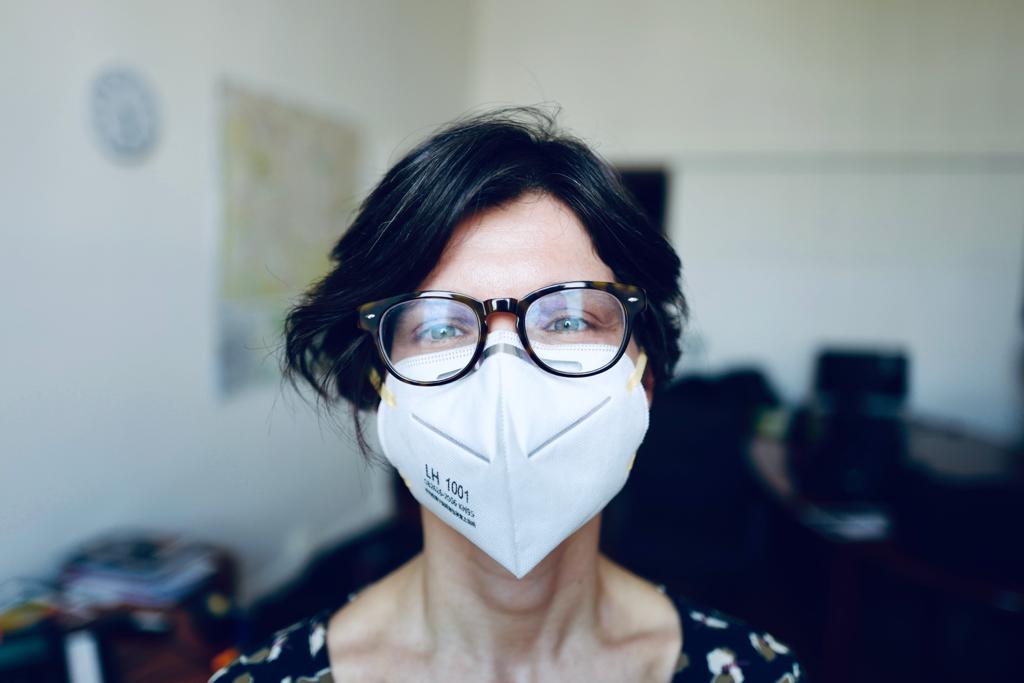Nextagri in a Nutshell
Edited on
23 August 2021Under the frame of the “Milan Food policy” and the policy strategy called “Circular Milan”, the legacy of OpenAgri post-UIA consists in an innovation hub serving a bigger part of the agricultural park, with a strong focus on the waste-water sector, understood as the activities related to treatment, and valorisation and reuse of wastewater of any origin (municipal, industrial, or agricultural).
NextAgri is the mechanism to transfer the practice to 3 European cities: Vila Nova de Gaia in Portugal, Stara Zagora in Bulgary and Almere in the Netherlands

"When we see that 50% of the Earth's habitable land is devoted to agriculture, 77% of this land is devoted to the production of meat, dairy products, poultry - and cereals for this beef and poultry production. That is, almost 4/5 of the total. Cereals, vegetables and fruits occupy only 23% of the global agricultural land. However, take note: despite being worth 77% of agricultural land, animal production is worth only 18% of the calories and 37% of the proteins produced worldwide. In contrast, the (only) 23% of land where we grow "fresh" and grains generate 82% of calories and 63% of protein in human consumption. All these data show the need to implement innovative and disruptive solutions leaded by cities and more important to share and transfer knowledge to the wide community of practitioners’ cities."
Source: Environmental impacts of food production - Our World in Data
OpenAgri, Milan’s UIA project under the Jobs and Skills topic, aimed at testing an integrated strategy to deliver innovation in existing and newly created nodes of the agrifood value chain, focusing on new skills, training, pilot projects for SMEs and startups ideas. The proposed solution is an “Open Innovation Hub on PeriUrban Agriculture” as a tool to integrate into the Milan Food Policy and the Circular Milan strategy startups promotion, capacity building initiatives, technological projects, community involvement processes.
As the focus of the proposal was on business development and innovation, OpenAgri has tested unconventional tools and innovative learning paths to support both the creation of new businesses and the development of existing ones. Besides, the project paid attention to the inclusive role of agriculture in peripheral urban areas, and the social and territorial impacts of the new businesses created.
Acting smart in the context of OpenAgri was not only about technological innovation (such as data-driven agri-tech solutions) but more about the sustainable use of local resources and amenities. In doing so, the project has contributed to boosting business diversity and creating a new urban economy which can prove to be specialised and advanced but still resilient.
This experimental project challenged existing practices and regulations in cities, regions, policy fields and local contexts. The project proved to be an excellent testbed for UIA program approach, which takes a place-based approach to employment and skills strategies. It means not starting from physical regeneration per se, but stimulating new economic dynamics within a local area, with the ambition to connect the newly created skills and jobs to a wider system, at the urban and metropolitan level.
Under the frame of the “Milan Food Policy” and the policy strategy called “Circular Milan”, the legacy of OpenAgri post-UIA consists in an innovation hub serving a bigger part of the agricultural park, with a strong focus on the waste-water sector, understood as the activities related to treatment, and valorisation and reuse of wastewater of any origin (municipal, industrial, or agricultural).
NextAgri is the mechanism to transfer the practice to 3 European cities:
VILA NOVA DE GAIA (PT); (Population: 302.295; Area: 168.46 km2) – Metropolitan Area of Porto (Population: 1.721.038; Area: 2.040.31 km2).
STARA ZAGORA (BG); (Population: 158.563; Area: 190.46 km2) – Province of Stara Zagora (Population: 333.325; Area: 5.151.000 km2)
ALMERE (NL); (Population: 207.904; Area: 248.77 km2) – Province of Flevoland (Population: 423.021; Area: 2.412.00 km2
The Knowledge transfer process will consist of five main pillars and will be structured by modules as follows:
1) The role of open innovation in developing an entrepreneurial support ecosystem - will focus on methods and approaches to foster the creation of new innovative firms and social enterprises focusing on innovation and sustainability in peri-urban agriculture and the agri-food sector. To be shared the approach and methods adopted in co-designing an open call looking for innovative ideas in peri-urban agriculture” (from agri-food tech to agroecology to social innovation).
2) Educational & Training (the “Food Innovator”) – the focus will be on how to create a favourable training environment to build new competencies to deploy innovative solutions in peri-urban agriculture and the food domain. The module focuses on methods and tools adopted in co-designing a mentoring/acceleration programme, e.g., integrating economic/financial tools (business models/business canvas) and territorial (and experiential) knowledge/wisdom. Best practices will be showcased through practical workshops, such as the “Officina” format (an exclusive food fablab that blends culinary tools with 3D printers, laser cutters, sensors, Arduino, etc. powered by Future Food Institute), and the “Open Badges” (a connected, digital way to showcase professional competencies).
3) Rethinking agricultural land use management in peri-urban areas (An innovative “Masterplan”) - Cities can play a key role both in facilitating the access to agricultural land for innovators and in supporting entrepreneurship that takes multifunctionality as an approach. The module will focus on the so-called “Masterplan 18X30” as a tool to redesign an area of 30 ha of agricultural land owned by the Municipality, according to 18 projects selected through the open call.
4) Resilient and integrated urban development - Within the OpenAgri project, a regeneration process of a peri-urban area in Milan has started, through the development of an innovative food hub. The agro-ecological and landscape design developed by the 30-hectare Masterplan created a new locality for the city. This means designing for shared access to systems and services, planning functional infrastructures, and activating networks between people, places and products, developing new business opportunities that integrate private and public interest/objectives.
5) Long term sustainability - Starting from the lesson learned from OpenAgri trajectory, the focus will be on business and governance model and the main challenges related to sustainability (embedding the project in a wider policy strategy; commitment and co-investment by the administration; the capacity to build a new strategic partnership during the project lifecycle).
The 5 modules represent the culmination of three years of pioneering activity from one of the first wave of UIA projects. The project has delivered on its promises, nevertheless, there are still works to be done after the UIA funding ends.
In summary, the impact dimensions of NextAgri are coherent with the Urbact intention to promote and shed light on Urbact FOOD NETWORKS such as: “Diet for a Green Planet”, “Agri-Urban”, “Sustainable Food in Urban Communities”, “BioCanteens”, “RURBAN”, “BeePathNet” and “Food Corridors”.
When we see that:
- 50% of the Earth's habitable land is devoted to agriculture
- 77% of this land is devoted to the production of meat, dairy products, poultry - and cereals for this beef and poultry production.
That is, almost 4/5 of the total. Cereals, vegetables and fruits occupy only 23% of the global agricultural land. However, take note: despite being worth 77% of agricultural land, animal production is worth only 18% of the calories and 37% of the proteins produced worldwide. In contrast, the (only) 23% of land where we grow "fresh" and grains generate 82% of calories and 63% of protein in human consumption.
All these data show the need to implement innovative and disruptive solutions leaded by cities and more important to share and transfer knowledge to the wide community of practitioners’ cities.
Written by: Miguel Sousa, NextAgri Lead Expert
 Submitted by Cristina Sossan on
Submitted by Cristina Sossan on
